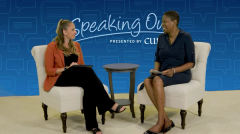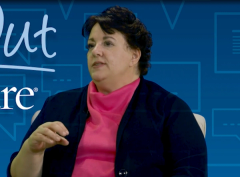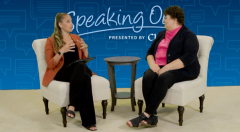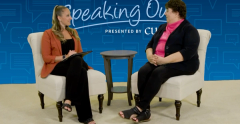
Genetic and Genomic Testing Unraveled: A Guide for Patients With Breast Cancer
As part of its Speaking Out video series, CURE spoke with Marla Sustin, from University Hospitals Seidman Cancer Center, about the differences between genetic and genomic testing in breast cancer care.
Episodes in this series

Genetic testing and genomic testing may sound similar, but they differ significantly in their scope and purpose, especially in the breast cancer space. Genetic testing focuses on individual genes, assessing whether they are normal, have variants or exhibit mutations, while genomic testing delves into how genes interact within their internal environment and their potential impact on an organism, including disease susceptibility.
As part of its Speaking Out video series, CURE® spoke with Marla Sustin, a nurse practitioner at University Hospitals Seidman Cancer Center in Cleveland, about the differences between genetic and genomic testing, how genomics are used in breast cancer specifically and what patients should be asking their doctors about the results.
Sustin explains that genetic testing, often sought by individuals with family histories of specific conditions, like the BRCA1 and BRCA2 genes associated with breast and ovarian cancer, concentrates on identifying genetic mutations. If a mutation is found, it carries a high risk of disease, which is essential information for both the patient and their relatives.
On the other hand, genomic testing comes into play after a cancer diagnosis. For instance, breast cancer genomic testing, such as the Breast Cancer Index, examines specific subsets of genes to tailor treatment plans. It gauges not only the risk but also the need for extended therapy for patients.
The timing of genomic testing varies, with key moments being pre-treatment and post-treatment, often around the five-year mark. Survivors also benefit from long-term monitoring, with tests like the Breast Cancer Index helping determine the need for continued therapy and the risk of recurrence.
Sustin encouraged patients to actively participate in their healthcare decisions. “Questions are very important … this allows patients to be very involved in their care, because it is shared decision making,” she said. “…But it's never too late to ask (questions) because there's always new developments.”
For more news on cancer updates, research and education, don’t forget to








